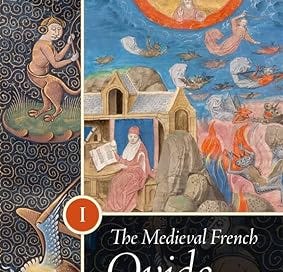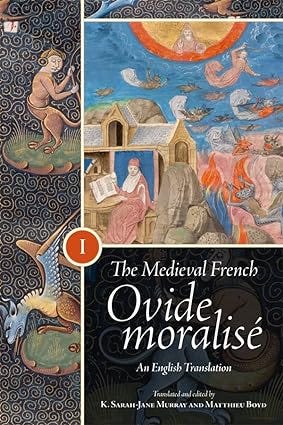More updates! Hopefully, people find these posts useful. I find that they keep me focused and on-track for the things I am doing for the show. I am naturally lazy, so I need the accountability.
Flower World Prophecy/Our Lady of Guadalupe
A few days ago, I recorded the interview with Joseph and Monique Gonzalez about their new book, Guadalupe and the Flower World Prophecy by Sophia Institute Press. They were lovely people and we talked about Nahau and Aztec mythology, the propaganda of Snake-Woman, and how St. Juan Diego participates in Truth Myth. The episode is being edited by underpaid staff (me) and should be out April 30, 2024.
Eifelheim Discussion May 10, 2024 at 08:45 pm Central Time
The discussion date for Eifelheim draws ever nearer! I will send a link out for those participating a few days beforehand. I invited a historian and good friend of mine, Matthew Scarince, to join the discussion as a special guest. Matthew is a fan of Michael Flynn and should hopefully be able to provide the historical context for the book and address any questions regarding the theological opinions that are articulated by the characters.
The Medieval French Ovide moralisé
I recently learned about a new translation of a Medieval French poem in English for the first time, the Ovide moralisé.
Here is the description from the publisher:
First English translation of one of the most influential French poems of the Middle Ages.
The anonymous Ovide moralisé (Moralized Ovid), composed in France in the fourteenth century, retells and explicates Ovid's Metamorphoses, with generous helpings of related texts, for a Christian audience. Working from the premise that everything in the universe, including the pagan authors of Graeco-Roman Antiquity, is part of God's plan and expresses God's truth even without knowing it, the Ovide moralisé is a massive and influential work of synthesis and creativity, a remarkable window into a certain kind of medieval thinking. It is of major importance across time and across many disciplines, including literature, philosophy, theology, and art history.
This three volume set offers an English translation of this hugely significant text - the first into any modern language. Based on the only complete edition to date, that by Cornelis de Boer and others completed in 1938, it also reflects more recent editions and numerous manuscripts. The translation is accompanied by a substantial introduction, situating the Ovide moralisé in terms of the reception of Ovid, the mythographical tradition, and its medieval French religious and intellectual milieu. Notes discuss textual problems and sources, and relate the text to key issues in the thought of theologians such as Bonaventure and Aquinas.
I have been in contact with on of the translators of this magnificent 1200 page (!) collection and my plan is to interview them this summer sometime. Obviously, I need to read this. Should go pretty quick right? Well, the introduction is about 65 pages long and I am still working through that! So far, it is amazing.
Odds and Ends
I am in the process of writing the second post for “What Makes Good Fantasy”. I want to have that out by the end of next week, but I have four good excuses for being late: my children.
My wife and I are trying to find a time to record the next episode of the paid subscriber series, Cauldron of Story. This next one will be the Grimm story, The Goose Girl. This one is nuts and should be fun to discuss.
That’s it for now!





Aaron, Keep up your Updates. I've found them thoughtful and useful. I was unaware of Northrop Frye, but your note led me to get his "Act of Creation, Essays 1979-1990". His projects in literary criticism seem to be a sort of model for the Myth Model which I'm putting out on Substack. I've made Frye my "water closet" book, which means it gets a few minutes reading every day. I think "Act of Creation" is an easier and higher level survey of his thought than the tome you're reading. Also, your discussion about Types made me realized that my "A Tale of Two Times" presents two Types of the Fall of Adam and Eve which are entwined in the narrative action, within the larger theme treated fictionally of how could Satan repent. So keep thinking and writing, as part of your family life.